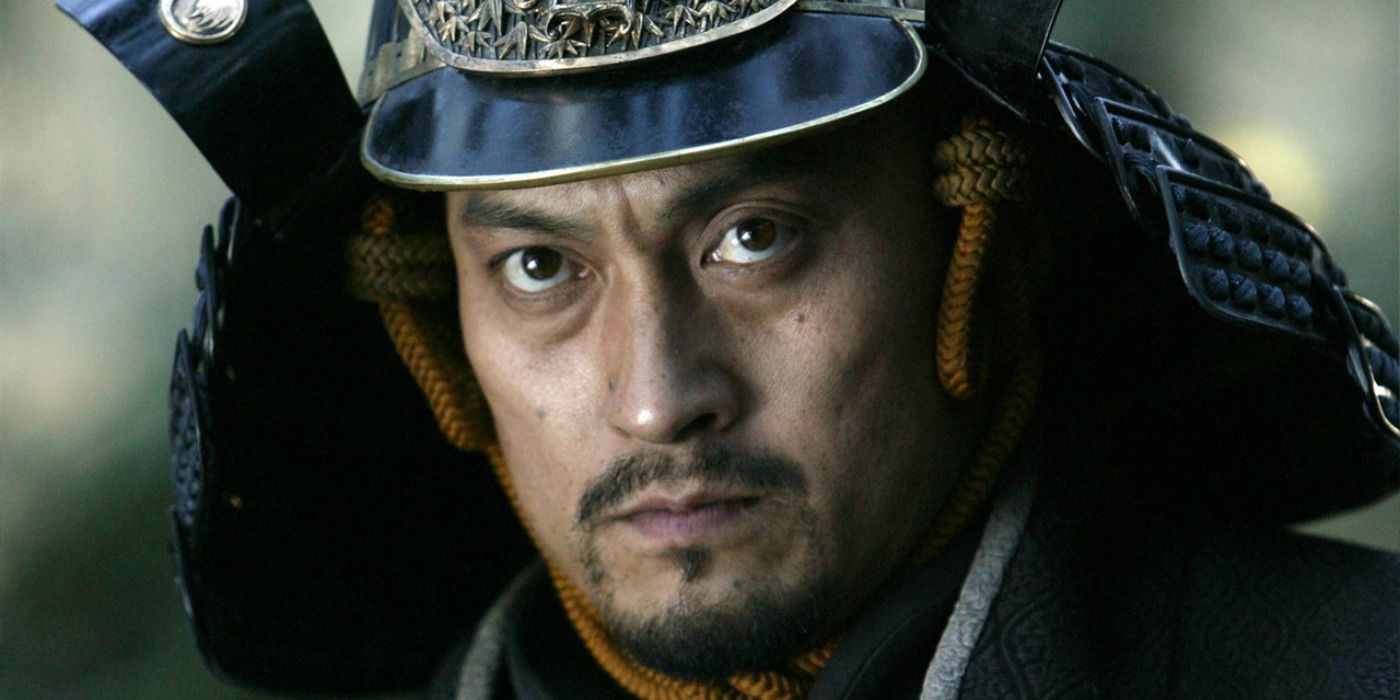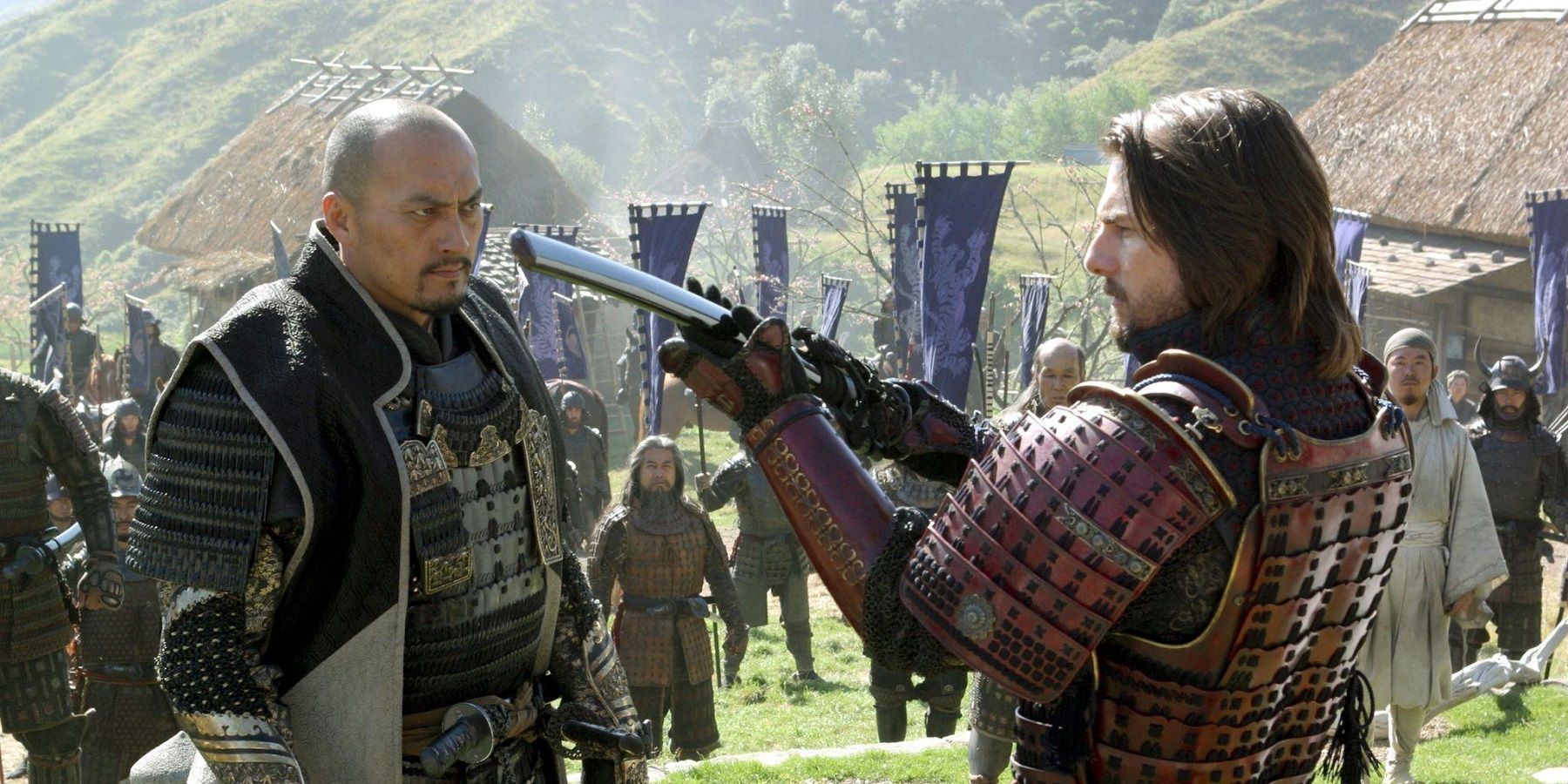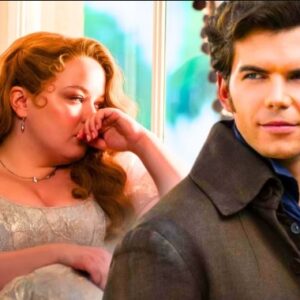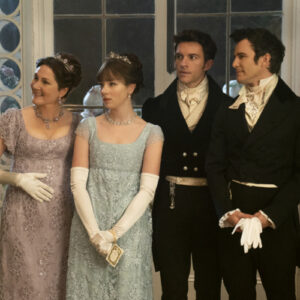The Last Samurai star Ken Watanabe defends the Tom Cruise-led movie against criticism that it exemplifies Hollywood’s white savior trope.

The Last Samurai star Ken Watanabe defends the acclaimed Tom Cruise movie after backlash regarding representation. Released in 2003, the film starred Cruise as United States Army Captain Nathan Algren, who was sent to Japan in 1876 as a military adviser to help the Emperor quell a samurai uprising following the Meiji Restoration. After losing his first battle, Algren is captured by Lord Moritsugu Katsumoto (Watanabe) and is shown the ways of the samurai. Experiencing a change of heart, Algren rides alongside Katsumoto in battle to help retain their freedom from the Emperor.
Upon release, The Last Samurai was well-received by critics and picked up four Academy Award nominations, including Best Supporting Actor for Watanabe. In subsequent years, however, the film has been criticized for its romanticization of Japanese and samurai culture, ignoring of crucial aspects of the Meiji Restoration, and adherence to the white savior trope, in which a white hero plays a crucial role in the liberation of non-white characters. Examples of this trope can be found in films such as Dangerous Minds, in which a white teacher enters an underprivileged school of minority students , or Dances with Wolves, which sees a jaded lieutenant in Union Army become part of the Sioux nation and help them fight both their Pawnee enemies and the invading American military.
In an interview with The Guardian, Watanabe speaks in defense of The Last Samurai, pushing back against its perceived use of the white savior trope. The actor conversely sees the movie as progression in Hollywood’s portrayal of Asians on screen, and a step in the right direction following decades of overtly racist depictions. Read what Watanabe has to say below:
I didn’t think of it like that. I just thought we had the opportunity to depict Japan in a way that we were never able to before. So we thought we were making something special. […] Before The Last Samurai, there was this stereotype of Asian people with glasses, bucked teeth and a camera. It was stupid, but after [The Last Samurai] came out, Hollywood tried to be more authentic when it came to Asian stories.

Watanabe’s stereotypical description of Hollywood’s past Asian representation refers to the much-maligned portrayal of venerable actor Mickey Rooney’s Japanese character Mr. Yunioshi from Breakfast at Tiffany’s (1961). Although the movie was embraced upon release, the character has been widely criticized as one of the most racist in Hollywood film history. Watanabe sees the romantic portrayal of Katsumoto and the samurai as a positive step forward in correcting the American film industry’s past.
Although Hollywood has improved their depictions of Asians in cinema since The Last Samurai, positive roles for Asian actors have been few and far between. Generally being relegated to henchman, accountants, or side kicks, only recently have Asian actors been given prominent parts in major motion pictures. 2018’s Crazy Rich Asians was hailed as a momentous film for a depiction of Asian culture previously unseen in Hollywood. In 2021, Simu Liu became the first Asian lead in a Marvel superhero film with Shang-Chi and the Legend of the Ten Rings. And this year, Pixar’s animated Turning Red offered a heart-warming coming-of-age tale in the heart of the Asian community of Toronto, Canada. Although there have been major strides in recent years regarding Asian representation in Hollywood, the industry still has a long way to go to further distance themselves from its racist past.





